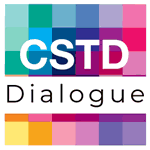Written by Xiaolan Fu, Professor of Technology and International Development, University of Oxford
Xiaolan Fu, Professor of Technology and International Development, University of Oxford
In 2015, the United Nations launched the 2030 sustainable development goals (SDGs). Different from the previous development agenda, this 2030 Agenda placed a significant role for science, technology and innovation (STI) to accelerate the implementation of the SDGs. In the summer of 2015, I heard the good news, from Addis Ababa, about the establishment of the Technology Facilitation Mechanism (TFM) for sustainable development. The global community had a great expectation that, assisted and empowered by STI, we would have an equal, inclusive and sustainable world as highlighted in the 17 SDG goals by 2030.
Now we are at the halfway point of 2030 Agenda. From an UN meeting I attended recently, I heard that, if we exclude data about China, there is almost little progress in the developing countries (LDCs) in respect to many of the SDGs. Although there are some progresses in some areas and in some countries, overall, there are significant shortfalls in meeting the SDGs.
Where are the problems? Have we really done enough to prioritise SDGs and emphasize the role that STI can play in achieving these goals? Given the multiple crisis that the global community faces and the deteriorating inequality, how can we energizing STI processes for SDGs and enhance STI contributions in the coming 7 years?
The global community, including policy makers, private sector business leaders, civil society organisations, and public institutions should ask ourselves the following seven questions:
- Have we built strong enough political will to enhance STI capabilities and their contributions to SDGS in your countries and communities? Our research and the 2023 TIR find that institutional change is vital in the creation of green windows of opportunity. Government policy and local agency are also critical in developing the capacity to capture the GWO. This will be the same for all the SDGs-related mission oriented changes and innovations.
- Have we really prioritized SDG-oriented STI sufficiently in our investment decision? In face of multiple choices and pressure, have we been determined enough support SDG-oriented STI?
- Have we given enough policy incentives and financial support to attract and support our young people, especially those in the developing countries, and partner with them? We heard from the ‘great minds’ this morning that a most important thing to do is to release the ideas and energy of young people in Africa. Have we done enough in this regard?
- Have we introduced sufficient regulations and policy incentives to encourage or even require the private sector and the civil society to join the great green transformation in various deep ways? Have we made assertive requirement to the multinational companies to provide training and local supply chain procurement to enhance technology transfer to local capabilities building?
- For the rich countries, have you made the strongest efforts and support that you can make to invest in and cooperate with the developing countries in their SDG-oriented development process?
- Have we been bold enough to remove the obstacles in technology transfer? We heard many countries highlight the need of technology transfer in their statements. Have we done enough to move the barriers in technology transfer 1) from the lab and the real world, and 2) internationally from Global North to Global South or between the Global South.
As many of the technology for the green transformation are already available, the UN should prioritise the removal of barriers in technology transfer in the next two years. Be bold and innovative in this regard. We cannot doing business as usual. -
Have we made enough efforts to develop the institutions that are needed to energize STI for SDGs, for example, the development of universities, the university linkages, international cooperation platforms, a favourable environment that supports innovation and cooperation?
Have we been innovative enough enhance STI, being innovation in policy and in institutional development. I want to tell the LDC governments, in terms of policy and institutional innovation, you are not necessarily followers, you can lead the charge.
We need global industrial policies for green and digital transformations, two realistic and major opportunities for the LDCs. The UNFCCC, UN’s Digital Committee, and some works done by CSTD, UNCTAD, UNIDO and TFM all together form important part of it. But this is not enough in terms global policy coordination, resources mobility, and local efforts.
Science, technology and innovation can be catalysts for achieving the sustainable development goals.
In the context of the UN Commission on Science and Technology for Development, the CSTD Dialogue brings together leaders and experts to address this question and contribute to rigorous thinking on the opportunities and challenges of STI in several crucial areas including gender equality, food security and poverty reduction.
The conversation continues at the annual session of the Commission on Science and Technology for Development and as an online exchange by thought leaders.


